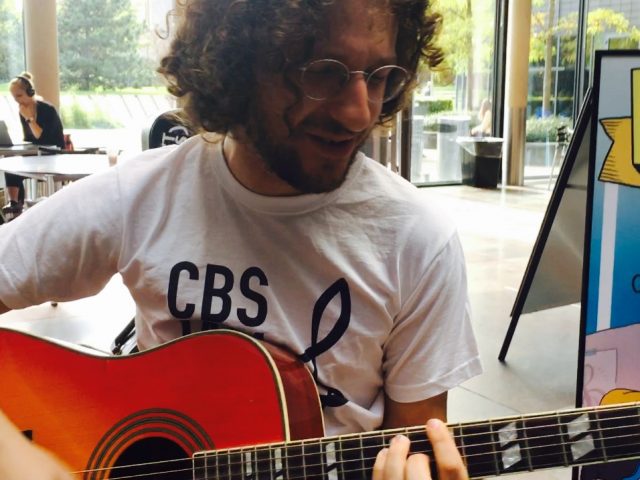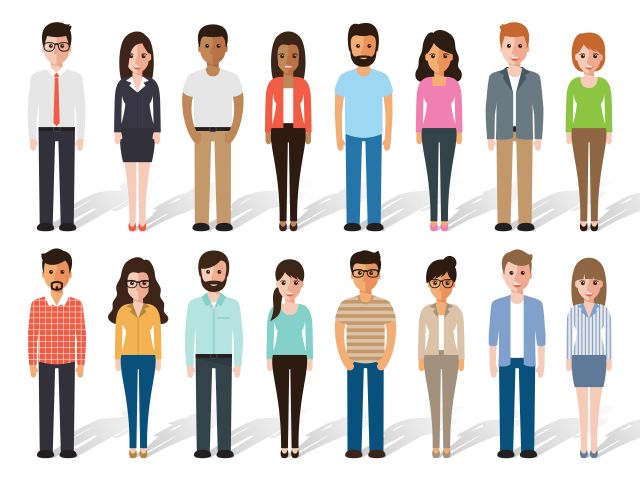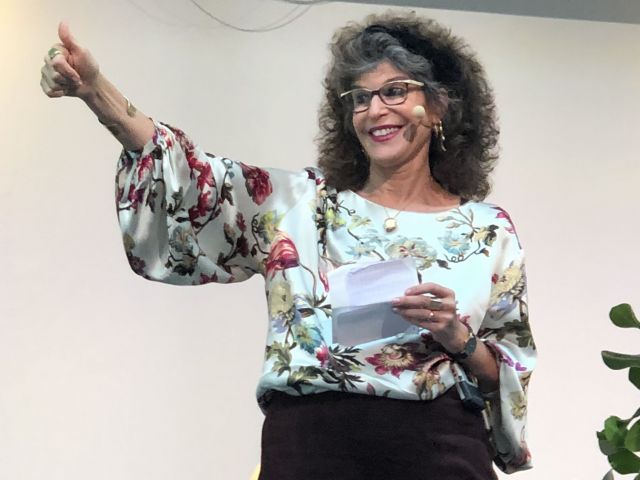Diversity Day: “You can’t hire your way to the benefits of diversity”

(Illustration: Shutterstock)
Diversity is a vital aspect of disrupting and innovating, but you cannot acquire it simply by hiring a diverse work force, argue Florence Villeséche and Alex Klinge, researchers at CBS. As co-organizers of this year’s Diversity Day on October 8, they are aiming to investigate how diversity and innovation go hand in hand and what role research plays in making diversity a success.
In recent years, businesses, organizations, students and researchers have discovered the importance of diversity and what opportunities it can bring to the table.
“We don’t discuss whether or not we need diversity anymore. Diversity has become a fact. But how do we make it work, and what results does it generate?” asks Florence Villeséche, Associate Professor at the Department of Management, Politics and Philosophy.
Together with Associate Professor and CBS’ Equal Opportunities Officer Alex Klinge, she is co-organizing Diversity Day at CBS, which this year explores how diversity and innovation is linked, what challenges practitioners encounter, and how researchers address them.
“Research shows that diverse teams achieve better results, but you can’t just hire your way to the benefits of diversity. It’s not a magic bullet that just works its magic when you have a diverse group of people. You need to engage people to make it work,” says Alex Klinge.
This year’s Diversity Day on October 8, entitled ‘Diversity Drives Innovation’, will feature a panel debate during which Florence Villeséche and Dario Pozzoli from CBS will present their research on diversity. They will also discuss the topic of diversity in practice with Susanne Leire from Salling Group.
“Salling Group has invested time and money in diversifying its business but the ambition to be inclusive can cause some challenges. We will discuss how research interfaces with reality,” explains Alex Klinge.
According to Florence Villeséche, relevant research plays a major role in encouraging practitioners in organizations and businesses to prioritize diversity.
You can’t create new results or innovate using the same team today as yesterday
Alex Klinge
“Results are often used as arguments for introducing more diversity. But as Alex Klinge mentions, you don’t reap benefits simply by avoiding hiring more white males. So, what makes diversity work and what fails? This is where researchers enter the picture. And our role is to communicate our results as clearly as possible. Otherwise, we will experience a backlash,” says Florence Villeséche, author of a recently published scientific paper showing that teams approaching a 50/50 gender balance perform best, provided they have positive attitudes towards diversity.
She continues:
“If a company experiences more problems after introducing diversity into the workforce, the word will spread to other companies. So we have to help them make it a success.”
Either you disrupt, or get disrupted
Diversity Day has been running for quite some years now, and since diversity has become a part of the curriculum and an established field of research, Florence Villeséche and Alex Klinge thought it would be interesting to consider diversity from another perspective.
Therefore, guests at Diversity Day can experience what diversity can taste and sound like while engaging in different talks that are all based on the links between diversity and innovation.
“If you want to adapt to new markets, you need new people. You can’t create new results or innovate using the same team today as yesterday. And it takes courage. Predicting results when you put together an entirely new team is not easy. But either you disrupt, or you get disrupted,” says Alex Klinge.
Research not only plays a role for existing companies and organizations. According to Alex Klinge, the research results will also affect CBS students.
Hopefully, we will show people that the field of diversity is constantly developing
Florence Villeséche
“About one third of all managers in Denmark are from CBS. So, directly and indirectly, they will obtain knowledge about diversity and be aware of it when they enter the labor market,” he says.
Florence Villeséche hopes that people will sample a range of different events during the day, but one aim tops her wish list:
“Hopefully, we will show people that the field of diversity is constantly developing – and therefore engaging with the topic to prompt change is actually a legitimate objective,” she says, adding:
“It’s also a really good day for master’s students who are searching for themes for their theses.”






































































































































Comments